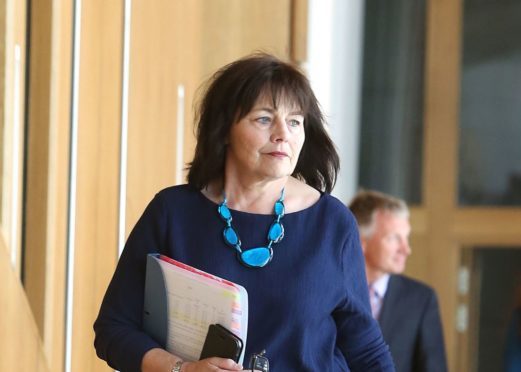Retired doctors are to return to work in an attempt to relieve the rural hospital recruitment crisis.
Health Secretary Jeane Freeman has announced the initiative which will see the government work with the Royal College of Surgeons of Edinburgh to bring recently retired clinicians back into service.
Ms Freeman said the NHS would benefit from retaining experienced health professionals, but doctors’ groups accused her of “fiddling at the edges” of the problem.
The scheme aims to attract recently retired doctors or those working part-time to short term work at rural general hospitals.
The move follows widespread concern over doctor shortages in the north and north-east. These have included the downgrading of maternity services at Dr Gray’s Hospital, Elgin, due to staff shortages last summer.
Since then efforts have been made to restore services but expectant mothers are still travelling to Aberdeen to give birth.
Recruitment challenges have also seen NHS Highland pay salaries totalling almost £1 million to employ two locums – one in Caithness General Hospital and the other in Belford Hospital, Fort William.
Dr Lewis Morrison, Chair of BMA Scotland, said: “There are long standing and deep-seated issues with the recruitment and retention of doctors across Scotland. This can be particularly true in remote and rural areas, so it is encouraging to see innovative solutions being used to try and help solve the significant issues that exist.
“But longer term, small scale schemes will do nothing to deal with the root causes of doctor shortages across our NHS.
“Rather than fiddling at the edges, we need serious and comprehensive measures to make working as a doctor more appealing.”
North East Tory MSP Peter Chapman described the scheme as a “sticking plaster solution”. He said: “It is very important that hospitals like Dr Gray’s remain fully staffed so that people do not have to travel long distances for treatment. We would not be in this position if the SNP had listened to warnings over several years that not enough doctors were being trained up.”
Ms Freeman said: “We are experiencing a period of unprecedented change and medical education must adapt and evolve to meet the expectations of our healthcare services.
“Our health service benefits if we can retain the expertise and skills of our most experienced doctors and health professionals. These highly experienced clinicians have told us that they would welcome the opportunity to maintain their clinical interests in more flexible ways, making them ideally suited to working in rural environments.”
